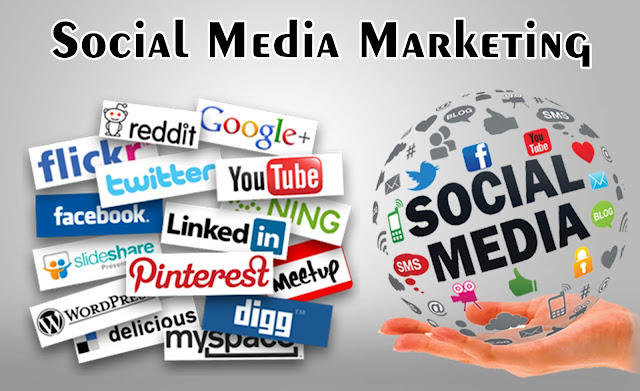Unlocking Success in the Digital Age: The Power of Digital Marketing
In today's fast-paced and interconnected world, digital marketing has emerged as a transformative force, revolutionizing the way businesses reach and engage with their target audience. As technology continues to evolve, embracing digital marketing strategies has become imperative for organizations of all sizes and industries. From small startups to multinational corporations, the ability to harness the power of digital marketing is a key differentiator in achieving sustainable growth and success.
In this article, we will delve into the fundamentals of digital marketing, explore its key
components, and highlight its potential to drive business growth in the digital age.
1. Understanding Digital Marketing:
Digital marketing encompasses a broad range of activities aimed at promoting products,
services, or brands through digital channels. These channels include search engines,
social media platforms, email marketing, content marketing, mobile applications,
and websites. Unlike traditional marketing, digital marketing allows for real-time
interaction, precise targeting, and personalized communication with the audience.
It empowers businesses to connect with their customers at every stage of the buyer's
journey, from awareness to purchase and beyond.
Key Components of Digital Marketing:
a. Search Engine Optimization (SEO): SEO focuses on optimizing a website's visibility in search engine results pages (SERPs). By using relevant keywords, enhancing website structure, and improving user experience, businesses can rank higher in search results, driving organic traffic and increasing their online visibility.
b. Pay-Per-Click (PPC) Advertising : PPC advertising enables businesses to display ads on search engines and other digital platforms. Advertisers pay only when a user clicks on their ads, making it a cost-effective and targeted advertising approach. Platforms like Google Ads and social media advertising networks offer powerful tools to create and manage PPC campaigns.
c. Social Media Marketing: With billions of active users, social media platforms have become valuable marketing channels. Businesses can leverage social media to build brand awareness, engage with customers, and drive traffic to their websites. It involves creating and sharing compelling content, running paid advertisements, and fostering an active community.
d. Content Marketing: Content marketing involves creating and distributing valuable and relevant content to attract and retain a target audience. Blog posts, articles, videos, infographics, and ebooks are some of the content formats used to educate, entertain, and engage users. Effective content marketing builds trust, establishes thought leadership, and drives conversions.
e. Email Marketing: Email marketing remains a powerful tool for nurturing customer relationships and driving conversions. By creating targeted email campaigns, businesses can deliver personalized messages, promote products or services, and build long-term customer loyalty. Automation tools enable businesses to streamline and scale their email marketing efforts effectively.
Benefits and Opportunities of Digital Marketing:
a. Enhanced Targeting and Personalization: Digital marketing enables businesses to segment their audience based on demographics, interests, and behaviors, allowing for highly targeted and personalized marketing campaigns. This level of precision increases the chances of reaching the right audience with the right message, leading to higher conversion rates.
b. Measurable and Data -Driven Digital marketing provides access to a wealth of data and analytics, allowing businesses
to measure the effectiveness of their campaigns in real-time. From website traffic to
email open rates and conversion rates, digital marketing provides valuable insights that
enable businesses to refine their strategies and optimize their marketing efforts.
c. Global Reach: With the internet's global reach, digital marketing enables businesses to expand their customer base beyond geographical boundaries. Companies can engage with potential customers worldwide, breaking down traditional barriers and opening up new markets and opportunities for growth.
d. Cost - Effectiveness: Compared to traditional marketing methods, digital marketing often offers a morecost-effective solution. With careful planning and targeting, businesses can achieve
significant results with a smaller budget, making it an ideal choice for startups and small businesses looking to maximize their marketing ROI.
In the digital age, embracing digital marketing is not just an option; it's a necessity.
The power of digital marketing lies in its ability to connect businesses with their target
audience in meaningful and impactful ways. By utilizing various digital marketing
strategies, businesses can enhance their brand visibility, build customer relationships,
and drive sustainable growth. However, it's essential to stay agile and adapt to the
ever-evolving digital landscape to remain competitive. The future belongs to those
who can harness the potential of digital marketing and leverage it as a strategic asset
for long-term success.




Comments
Post a Comment
Comment here